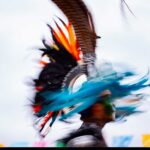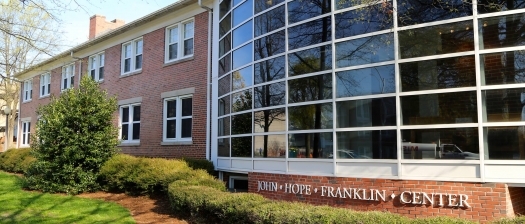A photography exhibition by Roderico Yool Diaz
Open reception:
Tuesday, April 19th – 6:30pm
John Hope Franklin Center
2204 Erwin Rd, Durham, NC 27705
With live music by: Larry Bellorín, Sophia Enríquez, and Joe Troop
Click Here To Visit the Website
“For nearly half a century, Latino/a/x* communities across North Carolina have played an important role in re-shaping the local and regional cultural footprint. However, the creative contributions of Latino/a/x people are often overlooked in narratives of migration and labor in the United States. This exhibit highlights the importance of music-making among these North Carolinians, as well as the prominence of Latin American-derived music in the Triangle area. This exhibit aims to show that in North Carolina, music is at the center of how these communities maintain relationships with their places of origin, navigate shifting social circumstances, and cultivate new ideas of home and belonging. The stories and voices present in this exhibit are not complete. They represent only a fraction of Latin American-derived traditions in North Carolina and cannot capture the diversity of North Carolina’s Latino/a/x communities. Rather, these photos represent the beginning of a more intentional effort to document migrant music and musicians in North Carolina. This exhibit is an invitation to celebrate the raíces, rutas, and ritmos of Latino/a/x North Carolinians.”
* The use of the word Latinx is contested. On one hand, Latinx has been used to signal gender inclusivity and move away from the gendered binary of Latina/Latino and the Spanish language, as well as build solidarity across activist networks in the United States and parts of Latin America. On the other hand, some feel as though it is exclusionary and homogenizing for those who may not identify as Latinx–especially those of Indigenous or African descent–and that it does not accurately reflect how people articulate their identities in everyday life. Language remains a barrier to how we can account for more nuanced identities and understandings.
“Durante casi medio siglo, las comunidades de inmigrantes en Carolina del Norte han desempeñado un papel importante en reformatear la huella cultural local y regional. Sin embargo, las contribuciones creativas de las personas migrantes a menudo se pasan por alto en las narrativas de la migración y el trabajo en los Estados Unidos. Esta exhibición destaca la importancia de la creación e interpretación musical entre los inmigrantes de Carolina del Norte, así como la prominencia de la música de origen latinoamericano en el área del Triángulo. Esta exhibición tiene como objetivo mostrar que, en Carolina del Norte, la música está al centro de cómo estas comunidades mantienen relaciones con sus lugares de origen, cómo navegan los cambios sociales y cómo cultivan nuevas ideas de hogar y pertenencia. Las historias y voces presentes en esta exhibición son unas pocas. Representan solo una fracción de las tradiciones migratorias en Carolina del Norte y no capturan la diversidad de las comunidades hispanas migrantes de Carolina del Norte. Más bien, representan el comienzo de un esfuerzo más intencional para documentar la música y los músicos inmigrantes en Carolina del Norte. Esta exhibición es una invitación a celebrar las raíces, rutas y ritmos de la música de los migrantes en Carolina del Norte”.
About Roderico:
For more than 15 years, Roderico has worked as an independent photojournalist and has documented the struggle of affected communities and survivors to overcome the aftermath of war and genocide in Guatemala and their relationship with migration to the United States. Roderico Yool-Díaz (1975, Chimaltenango, Guatemala), was born on a coffee plantation owned by the Dutch in the 1970s, a relic of colonialism in Guatemala where Indigenous people were forced to labor on European-owned plantations. Read More
Curated by:
Miguel Rojas Sotelo
Rafael A. Osuba
Text By:
Sophia Enriquez and Emily Rhyne, with assistance from students Samantha Gottleib and Grayson Real in the course MUSIC190S: Borderlands and Musical Crossings’
This project is sponsored by:
Duke University Center for International and Global Studies (DUCIGS),
Center for Latin American and Caribbean Studies (CLACS),
Department of Music, Program for Latina/o Studies in the Global South,
and the TDE Arts Fund.
Produced in partnership with Artist Studio Project and Iximché Media.
Also Free Parking at Duke Family Medicine Center (after 5pm) Across the street from JHFC on Trent Dr.



